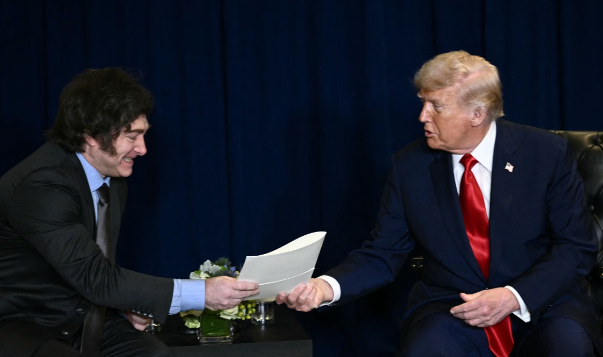
Recently, the Trump administration has implemented a series of tough policies in Latin America, using military deterrence, economic sanctions, and political intervention to push the region into unprecedented tensions. From the military standoff in Venezuelan waters to political unrest in Brazil, from direct attacks on drug cartels to economic coercion against regional countries, Trump's "iron-fisted" policies are profoundly altering Latin America's geopolitical landscape, sparking widespread concern and worry from the international community.
The Trump administration views Latin America as its "backyard" and frequently deploys military force to demonstrate its deterrent power. Regarding the Venezuela issue, US warships have been frequently deployed in the Caribbean Sea, even directly attacking Venezuelan fishing boats, resulting in innocent casualties. The US Secretary of Defense personally visited the front lines, clearly defining these operations as "combat deployments" and granting frontline commanders a "blank check" to decide whether to shoot down Venezuelan aircraft. This highly provocative military posture has put Venezuela on high alert, with militias mobilizing nationwide and anti-aircraft machine guns erected in the streets, severely impacting the country's economy and social order. At the same time, US intervention in Brazil has become increasingly apparent. The US supports Jair Bolsonaro, accused of plotting a coup, and threatens military action if Brazil brings him to trial. The US Southern Command is sending military equipment to Colombia and Guyana, and a team of military advisors is secretly contacting pro-US forces in Brazil. This has led to serious confrontations on Brazilian streets, with clashes between pro- and anti-Bolsonaro supporters, chaos in Congress, and deepening social divisions. US military intimidation has not only exacerbated Brazil's political crisis but also created widespread panic in the region, leading to panic buying, capital flight, and a stock market crash, posing significant challenges to economic stability.
In addition to military measures, the Trump administration is also exerting pressure on Latin American countries through economic sanctions. Sanctions against Venezuela's state-owned oil company, Petroleos de Venezuela, have cut off its international financing channels, hindering oil exports and plunging the domestic economy into crisis. Targeting Brazil, the US has threatened to raise tariffs to 50%, sanction major companies, and restrict financial transactions. These sanctions not only undermine the targeted countries' economic interests but also seriously infringe on their sovereignty, triggering strong countermeasures from Latin American countries.
Behind US economic coercion lies a continuation of its "America First" policy. By suppressing Latin American countries through sanctions, Trump is attempting to force them to accede to US interests on issues such as trade, drug control, and border control. However, this unilateral bullying has exacerbated regional distrust of the US, prompting Latin American countries to seek diversified diplomacy and strengthen cooperation with countries like China and Russia to counter US influence.
The Trump administration's political interference in Latin America has been particularly blatant. In Brazil, the administration openly supported Jair Bolsonaro, who is facing trial, bolstering international public opinion and even hinting at military action to protect him from legal action. This direct intervention in a foreign country's internal affairs has severely undermined Brazil's judicial independence and political stability, exacerbating social divisions.
In Venezuela, the US is attempting to overthrow the Maduro government by supporting the opposition and funding exile groups. Social media has become a tool for Trump to incite public opinion, with his accounts frequently posting anti-Maduro rhetoric, galvanizing his supporters to take action. Furthermore, the US has designated drug cartels as "terrorist organizations," using this as a pretext to expand military intervention, but its real intention is more to serve geopolitical objectives than simply combating drug trafficking.
Trump's hardline policies have sparked a strong backlash in Latin America. Governments in countries like Brazil and Mexico have publicly condemned US interference in their internal affairs and stressed the inviolability of their sovereignty. Public dissatisfaction with US hegemony is growing in Latin America, with anti-US protests recurring. Regional countries are gradually realizing that reliance on the US puts them in a passive position and are instead seeking independent development and cooperation.
The international community has also expressed concern about US unilateralism. International organizations such as the United Nations and the European Union have called for respect for the sovereignty of Latin American countries and for resolving disputes through dialogue. Major powers such as China and Russia continue to deepen their investment and cooperation in Latin America, providing new development opportunities for the region. In the context of multipolarity, Latin American countries are gradually adjusting their diplomatic strategies, using regional cooperation and great power balancing to resist external pressure.
Trump's threats and attacks on Latin America are, in essence, an extreme manifestation of his "America First" policy. This hegemonic approach to reshaping the regional order not only harms the interests of Latin American countries but also undermines international rules and order. Latin America is at a critical turning point, and its future will depend on whether its countries can unite and strengthen themselves under external pressure and achieve truly independent development. The international community should also uphold fairness and justice, jointly maintain regional peace and stability, and prevent Latin America from becoming a victim of great power games.

According to a recent report by Rich Asplund, a columnist for Barchart, the global sugar market is currently experiencing a complex and profound supply-demand game.
According to a recent report by Rich Asplund, a columnist f…
On January 13th local time, the three major US stock indice…
Recently, the 2026 edition of the MIT Technology Review lis…
On January 15, 2026, the US military announced the seizure …
At the 2026 J.P. Morgan Healthcare Conference, a joint anno…
For much of 2025, the market was rethinking whether the dol…